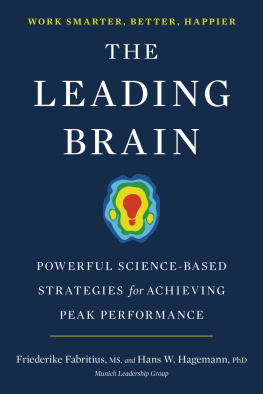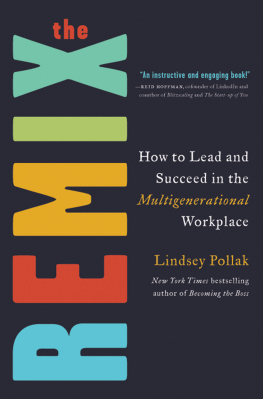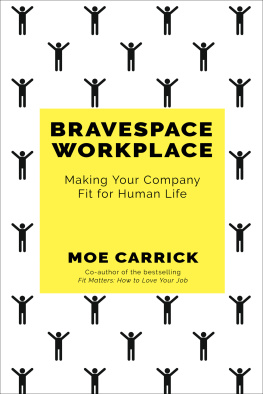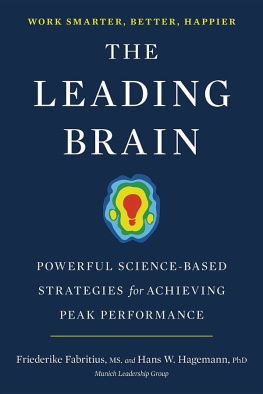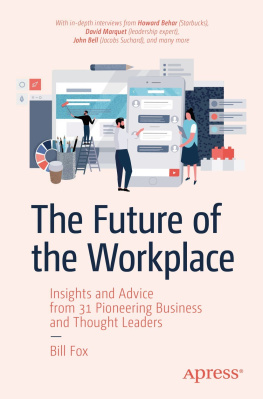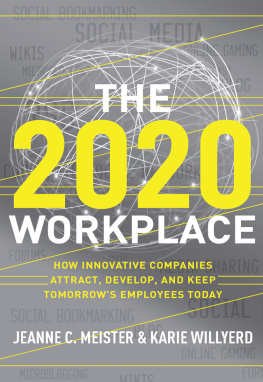Friederike Fabritius, MS, is a neuroscientist and trailblazer in the field of neuroleadership. Her brain-based leadership programs have transformed how Fortune 500 executives think, innovate, and navigate change. Fabritius is a thought leader and keynote speaker, known for engaging global audiences at organizations such as Google, Ernst & Young (EY), Boston Consulting Group (BCG), Adecco, Accenture, Deloitte, BMW, Bayer, SAP, Harvard Business Review, trivago, and Audi. An alumna of McKinsey & Company and the Max Planck Institute for Brain Research, she serves on the prestigious German Academy of Science and Engineering. Fabritius is author of the award-winning book The Leading Brain: Neuroscience Hacks to Work Smarter, Better, Happier. She is fluent in six languages and lives with her husband and five children in Heidelberg, Germany.
For more resources and guidance on your journey to be a Brain-Friendly Workplace, please visit: fabulous-brain.com
Alone we can do so little; together we can do so much.
Helen Keller
First and foremost, Id like to thank my literary agent, Jeff Herman of the Jeff Herman Agency, for believing in me and helping me share my message. I love books, and you have enabled me now to place my second book on the bookshelves of the world. Heres to many more! Big thanks, as well, to Rowman & Littlefield senior editor Suzanne Staszak-Silva for her perceptive editing, for believing in this books message and giving it a home. Thanks also to Susan Hershberg, Elaine McGarraugh, Deni Remsberg, and Alyssa Hawkins at Rowman & Littlefield for your support throughout the publication process. Special thanks to Carolin Nischwitz for your charming illustrations, which enrich each chapter with your intelligence and creativity. Thanks to Ross J. Q. Owens for your thoughtful edits to this book and for being there again.
Thank you to Dave Labno, Liisa Labno, and Dr. Helen Fisher at Neuro-Color for sharing your insights with me. Your work connects people across the globe based on a better understanding of how the brain works. Im grateful for everything Ive learned from you.
Thank you, Dr. Scott Barry Kaufman, for your inspiring and thoughtful foreword. Your knowledge of psychology runs so deep that its no wonder that The Psychology Podcast ranks number one.
To Eithne Jones, my wonderful speaking agent at Speaker Ideas, thank you for always, always having my back. Youve made so many connections for me, and I know youre always in my camp. A huge shout-out to all my clients, who allow me to share my ideas in keynote speeches on physical and virtual stages. I am so grateful for the opportunities you provide me to reach several hundred thousand executives every year doing what I love most.
I also deeply appreciate the thoughtful interviews given for this book by Dr. Scott Barry Kaufman, Julie Linn Teigland, Stephan Aarstol, Dr. Janin Schwartau, Arianna Huffington, Dr. Hubertus Meinecke, Claude Silver, Dr. John Medina, Amber Grewal, Jeff Furman, Riaz Shah, Dave Labno, Dr. Helen Fisher, Angelica Renhuvud, Ingrid Stolz, Judith Wallenstein, Evelyn Doyle, and Madelene Hjelm.
Thanks also to Martin Lindstrom and Jeff Stonefield for their priceless insights into the inner workings of the publishing industry.
To my parents, Dr. Marianne von Siegfried and Dr. Bernhard Wiedemann, and my siblings, Dr. Juliane Ebert and Konrad Wiedemann, thank you for filling our home with love and books. I wouldnt be where I am today without your unconditional support.
Finally, Id like to thank my husband, Jochen. Im so grateful that I met you, as with you I can be myself. Benita, Wolf, Heinrich, Sylvester, and Nike: I am so grateful that I get to be your mom. Thank you for your patience while I worked on this book. I love you all more than words can say.
Aarstol, Stephan. The Five-Hour Workday: Live Differently, Unlock Productivity, and Find Happiness. Carson City, NV: Lioncrest, 2016.
Branson, Richard. Screw It, Lets Do It: Lessons in Life. London, UK: Virgin Books, 2011.
Brinkley, Douglas. Rosa Parks: A Life. Waterville, ME: Thorndike Press, 2000.
Cain, Susan. Quiet: The Power of Introverts in a World That Cant Stop Talking. New York: Crown, 2013.
Calaprice, Alice, ed. The Ultimate Quotable Einstein. Princeton, NJ: Princeton University Press, 2010.
Chouinard, Yvon. Let My People Go Surfing: The Education of a Reluctant Businessman. New York: Penguin, 2006.
Janis, Irving L. Groupthink. New York: Houghton Mifflin, 1982.
Komori, Shigetaka. Innovating Out of Crisis: How Fujifilm Survived (and Thrived) as Its Core Business Was Vanishing. Berkeley, CA: Stone Bridge Press, 2015.
Lee, Richard B., and Irven DeVore, eds. Kalahari Hunter-Gatherers: Studies of theKung San and Their Neighbors. Cambridge, MA: Harvard University Press, 1976.
Lieberman, Matthew D. Social: Why Our Brains Are Wired to Connect. New York: Crown, January 2013.
Mullainathan, Sendhil, and Eldar Shafir. Scarcity: Why Having Too Little Means So Much. New York: Times Books, 2013.
Nemeth, Charlan Jeanne. No!: The Power of Disagreement in a World That Wants to Get Along. London, UK: Atlantic Books, 2021.
Pinker, Steven. The Language Instinct. New York: HarperCollins, 1994.
Schor, Juliet B. The Overworked American: The Unexpected Decline of Leisure. New York: Basic Books, 1993.
Small, Meredith F. Our Babies, Ourselves: How Biology and Culture Shape the Way We Parent. New York: Anchor Books, 1999.
Walker, Matthew. Why We Sleep: Unlocking the Power of Sleep and Dreams. New York: Scribner, 2017.
Wozniak, Steve, and Gina Smith. iWoz: From Computer Geek to Cult Icon: How I Invented the Personal Computer, Co-Founded Apple, and Had Fun Doing It. New York: Norton, 2006.
Zak, Paul J. The Moral Molecule: How Trust Works. New York: Plume, 2013.
Women are not the problem; they are the answer.
Julie Linn Teigland
I arrived at the massive top-floor conference room of a five-star hotel ready for a full day of company-sanctioned lean-in training. The forty-something instructor wore a tailored navy pantsuit and sensible pumps. Her hair was cut in a crisp bob, laced with expensive blond highlights. She began by explaining to our group of accomplished female executives that men play by different rules and that we must learn to use male power plays if we want to rise to the top.
I was working grueling hoursincluding lots of international travelfor a top-tier management consulting powerhouse. Women comprised less than 25 percent of the firms roster and only 5 percent of the partner group. Management was eager to improve these numbers by helping the firms female executives to get ahead. Sending me and my colleagues to learn how to lean in was a gender-diversity initiative.
As a neuroscientist obsessed with human behavior, I was very excited about attending this training. Could leaning in really help women achieve more power and rise up into the male-dominated upper echelons of the corporate universe?
DONT SMILE
Our instructor worked the room briskly, shaking hands with each of us. If our grips were weak, we had to shake her hand until our handshakes met with her approval. My polite squeeze was deemed insufficient. It took several increasingly hardy efforts on my part before she was satisfied. By the time she moved on, I felt like a lumberjack.
After the instructor made her rounds, she had us all work the room, giving each other hearty handshakes and instant feedback. Shouts of Stronger! and That felt like touching a dead fish! filled the air, accompanied by peals of laughter, met with disapproving glares from our tutor.


